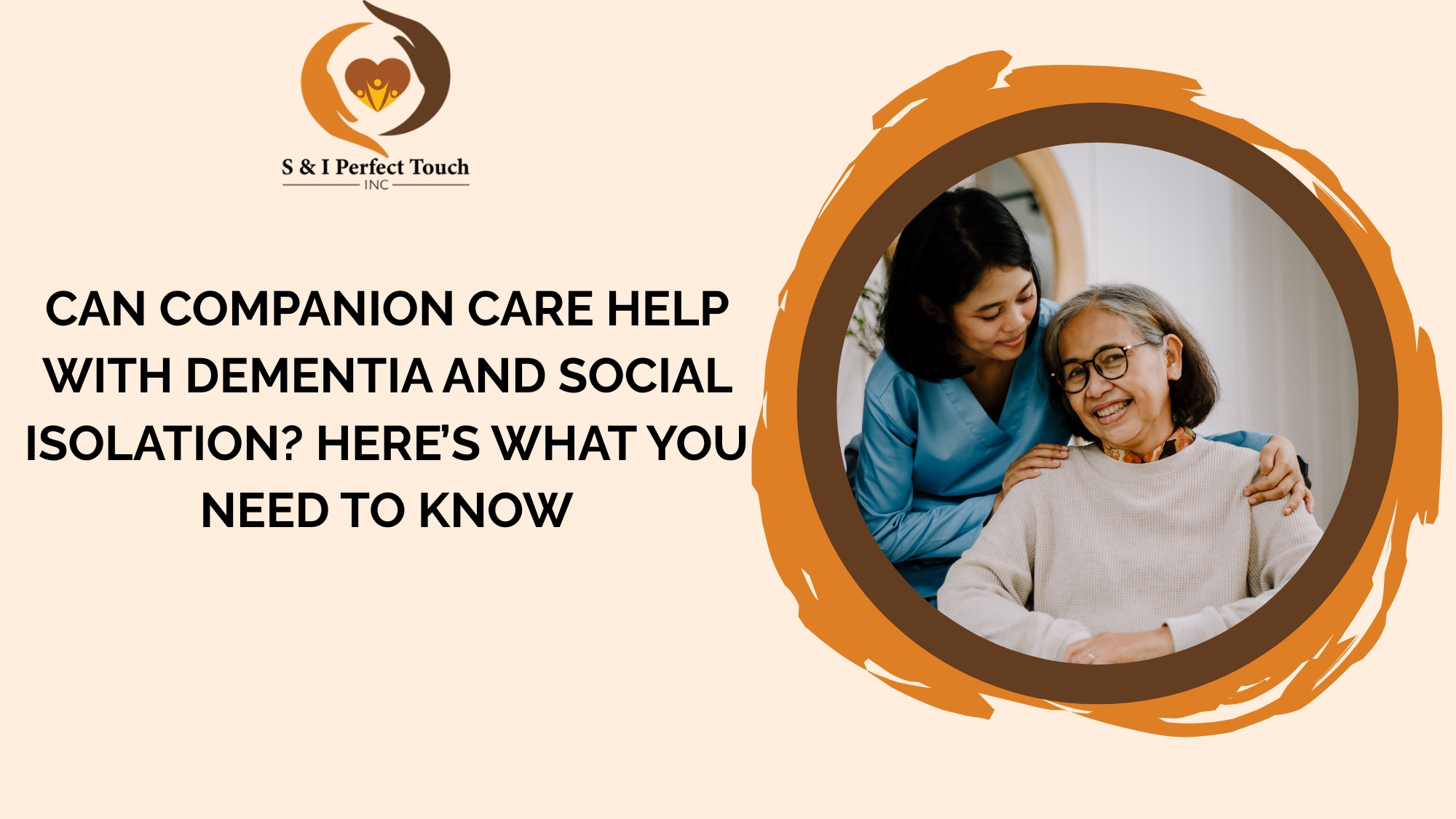Has your loved one become quieter than usual? Do they forget appointments, repeat stories, or seem lost in their own home? If so, they might be experiencing more than just memory loss—they could be facing a growing sense of isolation. In these situations, companion care for dementia offers a lifeline that nurtures connection, routine, and emotional safety.
This article explores how companionship services do more than fill time—they restore dignity, spark joy, and help slow the emotional toll of memory-related conditions.
🧠 What’s the Link Between Dementia and Social Isolation?
Dementia affects memory, language, behavior, and decision-making. Over time, it chips away at a person’s ability to engage with the world around them. Confusion, embarrassment, or fear of forgetting names can cause individuals to withdraw from social settings entirely.
Sadly, this withdrawal often accelerates decline. Dementia and social isolation go hand in hand—one feeding the other in a painful cycle of loneliness and disconnection.
“Mrs. J used to host bridge nights every Friday. Now she doesn’t remember what day it is. A companion visit each morning helps her greet the day with familiarity and calm.”
That’s where intentional, one-on-one companionship for memory loss becomes essential.
💡 What Does Companion Care Do for Dementia Patients?
Let’s look at how companion care for dementia supports both mental and emotional wellness—without overwhelming the individual.
✅ Rebuilding Confidence Through Emotional Connection
Seniors with dementia often feel “left behind” in conversations or social gatherings. Companion caregivers use empathy, repetition, and calm dialogue to:
- Listen without correcting
- Create a judgment-free zone
- Establish familiarity through consistent interaction
- Spark emotional recall with music, photos, or storytelling
Over time, this emotional trust becomes a stabilizing force.
✅ Gentle Mental Stimulation That Feels Like Fun
Daily mental activity supports memory retention and engagement. Companion care introduces simple activities tailored to the senior’s current cognitive level:
- Playing matching games or working puzzles
- Listening to music from their youth
- Reading aloud or discussing family photos
- Engaging in short memory-boosting tasks
These experiences aren’t about “fixing” dementia—but about nurturing joy and stimulation in the moment.
✅ How Routine Brings Calm to Dementia Care
Many seniors thrive on predictable structure. With a familiar companion visiting regularly, it’s easier to build gentle daily habits—meals at the same time, light exercise, or listening to the same song after lunch.
This routine reduces restlessness, helps minimize sundowning symptoms, and adds rhythm to days that might otherwise feel blurry.
Looking for this kind of stable support? Visit the client website and use their services to find dementia-sensitive care that meets your family where they are.
✅ Safe Socialization Without Overwhelm
Large groups can be disorienting for someone with dementia. One-on-one companionship offers simple, calm interaction without pressure. The senior can simply be themselves—without trying to keep up.
🛠️ Support Services That Reinforce Memory and Wellness
Companion care works best when paired with practical support services that protect a senior’s daily rhythm. Many families in Gwinnett County combine companionship with:
- Meal Preparation: Warm, nutritious meals made and shared with gentle conversation
- Personal Hygiene Care: Supportive grooming that respects independence
- Medication Management: Ensuring consistency and reducing skipped doses
- Monitoring of Chronic Health Conditions: Spotting changes that may signal new or worsening symptoms
Together, these services create a safer, more comfortable environment for seniors facing cognitive decline.
🕵️♀️ Signs That It’s Time for Dementia Companion Care
It’s natural to wonder when professional help becomes necessary. Here are signs that indicate companion care might be the right step:
- Your loved one repeats themselves often or gets lost in conversation
- They withdraw from family gatherings or stop answering the phone
- They forget to eat meals or take medications
- You notice mood swings, anxiety, or confusion at certain times of day
- The home appears less tidy, or routines fall apart
If any of these apply, dementia caregiver help can provide immediate relief—for the senior and the family alike.
📍 Compassionate Dementia Support in Gwinnett, GA
Caring for a loved one with dementia takes patience, skill, and heart. At Sandi Perfect Touch Home Care, the focus is on building familiarity, trust, and gentle engagement through customized companion care. Whether your loved one is in early or moderate stages, they’ll receive support tailored to their personality and pace.
Explore their dementia-appropriate companion care services, or view their Google Business Profile to learn how families in Gwinnett are finding peace of mind.
💬 Final Thoughts: A Familiar Face Makes All the Difference
When memory begins to fade, connection matters more than ever. Companion care for dementia brings back laughter, trust, and presence—without forcing the senior to be someone they’re not.
Even if a name is forgotten, the warmth of a smile or the comfort of routine remains. With the right care, your loved one can feel safe, respected, and truly seen—every single day.

